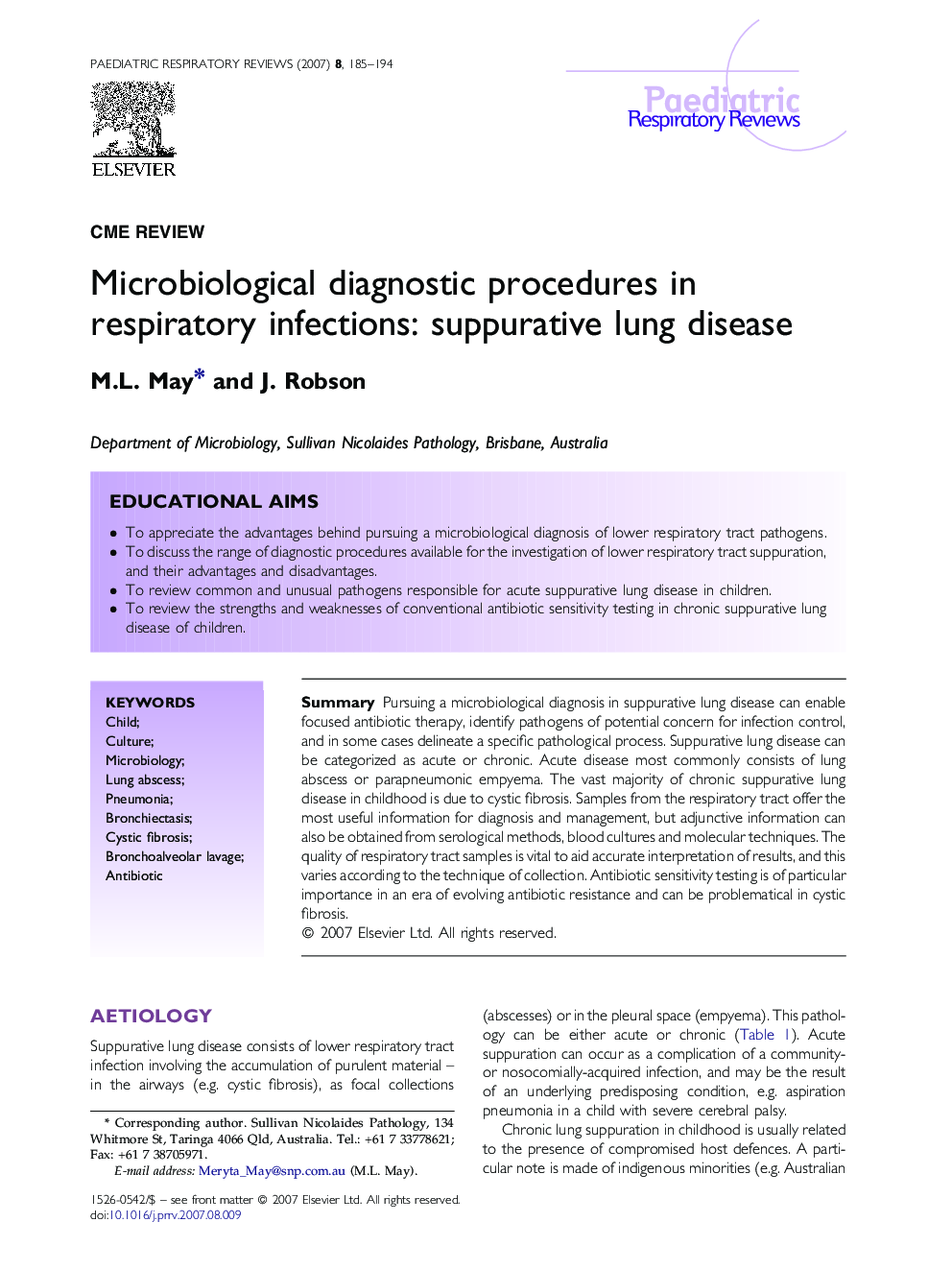| Article ID | Journal | Published Year | Pages | File Type |
|---|---|---|---|---|
| 4171743 | Paediatric Respiratory Reviews | 2007 | 10 Pages |
SummaryPursuing a microbiological diagnosis in suppurative lung disease can enable focused antibiotic therapy, identify pathogens of potential concern for infection control, and in some cases delineate a specific pathological process. Suppurative lung disease can be categorized as acute or chronic. Acute disease most commonly consists of lung abscess or parapneumonic empyema. The vast majority of chronic suppurative lung disease in childhood is due to cystic fibrosis. Samples from the respiratory tract offer the most useful information for diagnosis and management, but adjunctive information can also be obtained from serological methods, blood cultures and molecular techniques. The quality of respiratory tract samples is vital to aid accurate interpretation of results, and this varies according to the technique of collection. Antibiotic sensitivity testing is of particular importance in an era of evolving antibiotic resistance and can be problematical in cystic fibrosis.
